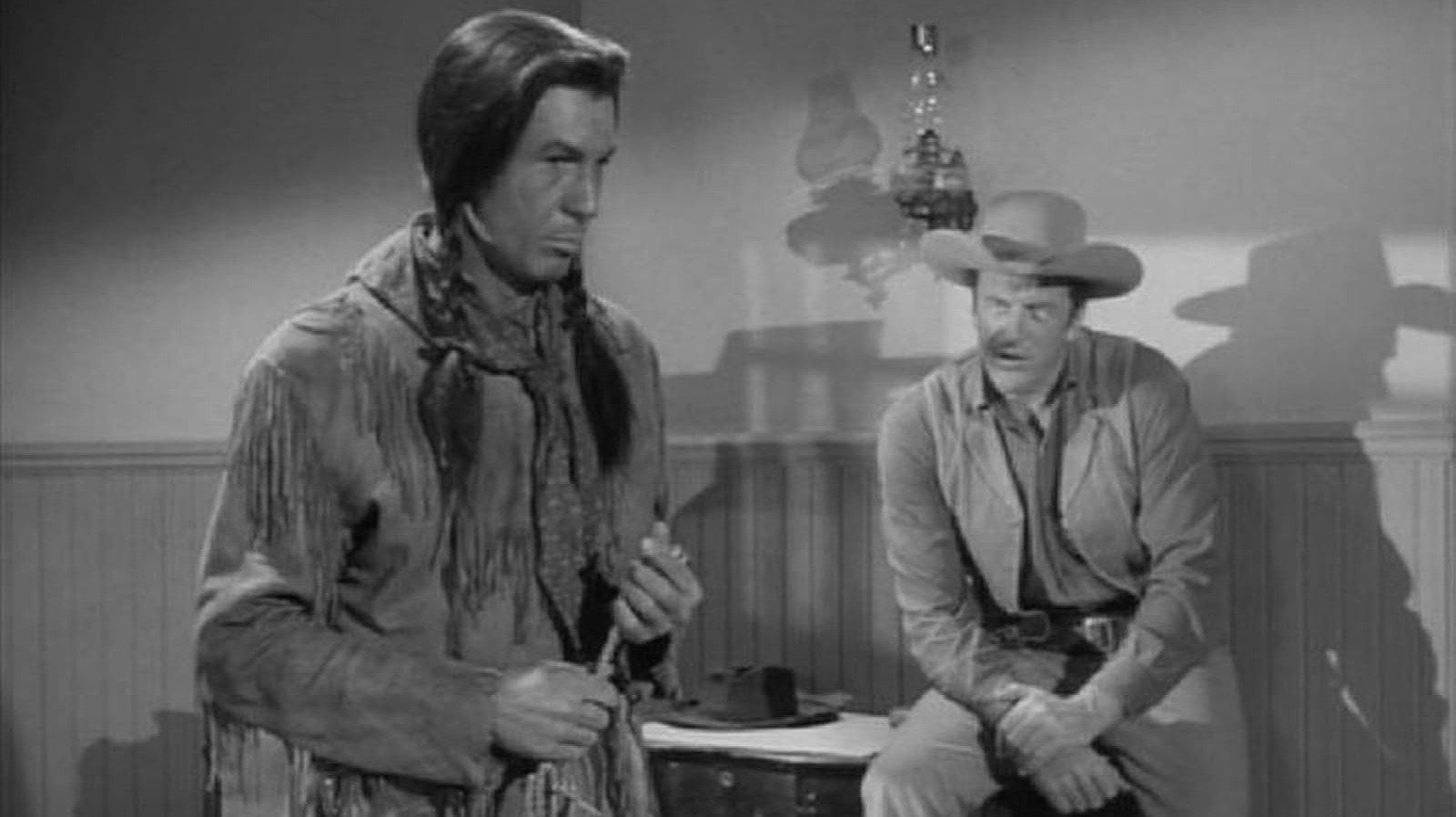
Leonard Nimoy, a cherished figure in television history, is often celebrated for his iconic role as Spock in Star Trek. However, his pre-Star Trek career is marked by controversial and culturally insensitive roles, particularly playing Native American characters, a practice commonly referred to as “redface.” This included a portrayal of a Comanche warrior in the series Tate and a character named Chief Black Hawk in Old Overland Trail, as well as an appearance in the classic Western Gunsmoke.
In a retrospective interview from 2000, Nimoy reflected on his time working on Gunsmoke, recalling his early connection with the show’s star, James Arness. Nimoy reminisced about how, after serving in the military, he returned to acting and found himself cast as John Walking Fox in a memorable episode titled “The Treasure of John Walking Fox.” This role came at a pivotal moment, just as he was awaiting news about the fate of Star Trek following a challenging pilot process.
In the episode, Nimoy’s character was depicted as a fur trapper who sought justice for his murdered friend, a white man, with the story revolving around the theme of vengeance and deception regarding hidden treasure. Nimoy described how the character pretended to have gold in order to manipulate the local criminals, thereby exacting a form of justice for his fallen friend.
While Nimoy may have viewed his character as enigmatic, the portrayal inevitably fell into the problematic trope of the stoic, mysterious Native American. Such portrayals were prevalent in the Western genre during the 1960s. Although Nimoy expressed a certain pride in this role, decades later, criticism surrounding cultural appropriation and misrepresentation of Native Americans has intensified.
In his conversations, Nimoy admitted to being typecast in various ethnic roles, explaining his experiences as an actor during a time when opportunities for non-white actors were scare. He shared that he often played characters labeled as “heavies,” ranging from bad guys to ethnic stereotypes, and he appeared to take pride in securing those roles, displaying a troubling lack of awareness about the harmful implications of his participation in such cultural appropriation.
Nimoy recalled an instance where the first Native role he was offered was turned down by a Native actor because of its negative representation. Yet, he seemed unbothered by this, expressing gratitude for the opportunity he received. This narrative highlights the systemic issues within Hollywood where Native actors were often sidelined in favor of non-Indigenous individuals.
Decades of history show that non-Native actors, including Nimoy, frequently filled roles meant for Indigenous characters, often reinforcing negative stereotypes. Nimoy’s stint on Gunsmoke marked one of his last portrayals of a Native American character before his transition into the groundbreaking role of Spock, which eventually ushered him into a new realm of iconic representation in science fiction.
Despite his later fame, Nimoy’s early roles served as poignant reminders of the industry’s failure to provide authentic representation of Native Americans, a legacy that still resonates today. While he enjoyed the transition from being typecast as a Native American to portraying an alien on Star Trek, the underlying issues of representation and cultural sensitivity remain pivotal conversations in the entertainment industry.



